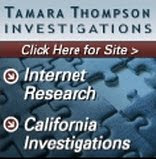"A jury," Mark Twain observed, "is comprised of twelve persons of average ignorance chosen to decide who hired the better lawyer." Yes. True. We want our juries to start out ignorant of the facts, so that they will decide the case on the facts actually in evidence, not on facts that they learn from independent research, because "extra-record influences pose a substantial threat to the fairness of the ... proceeding because the extraneous information completely evades the safeguards of the judicial process." U.S. v. Resko, 3 F.3d 684, 690 (3d Cir. 1993). But how do we ensure that? Our columns on this page during the past 10-plus years have focused on discovery -- the discovery we take as lawyers. But at a recent continuing legal education program created by our friend Phil Kessler for the American College of Trial Lawyers, we were hit smack up the side of our face with a troubling thought that had not occurred to us: The lawyers aren't the only ones doing discovery. Jurors have the tools -- and they are using them -- to discover all sorts of things about us, about our cases, about our witnesses. The information age makes finding those 12 ignorant persons and keeping them ignorant -- a daunting and maybe impossible task.Read more
What? Nationwide Employment Locator
-
Before you commit to a time-consuming surveillance to figure out where
someone works, check this nationwide employment locator. The Federal
Election Comm...




